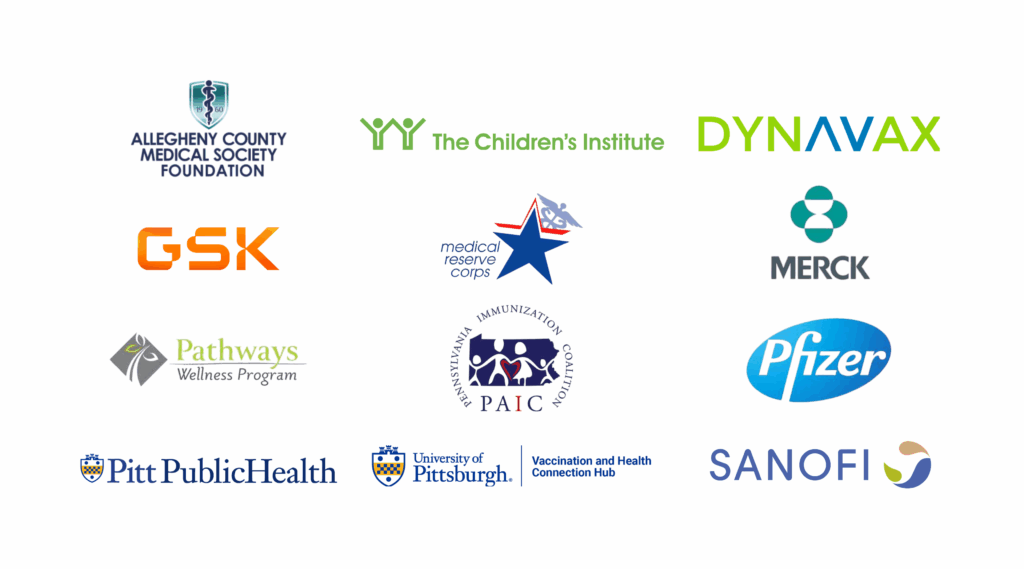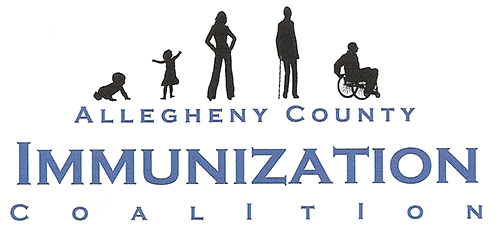2025 ACIC Immunization Conference Recap
A milestone gathering for public health collaboration, systems thinking, and vaccine confidence.
Why This Conference Matters
For 20 years, the ACIC Immunization Conference has brought together healthcare providers, school nurses, public health leaders, pharmacists, researchers, and community partners to strengthen vaccine confidence across Allegheny County.
This year’s program focused on practical communication strategies, behavioral science, system-level collaboration, and the real-world challenges shaping vaccination work today.
At A Glance
150+ attendees
14 speakers & panelists
10 exhibitors
6+ hours of continuing education
94% rated the conference “High” or “Very High” in overall quality
92% found the content highly relevant to their practice
Key Themes of the Day
Attendees consistently cited these themes as the most valuable:
Communicating with empathy and clarity
Understanding behavioral drivers of hesitancy
Strengthening cross-system partnerships
Improving school-based vaccination support
Using evidence-based strategies to counter misinformation
Designing workflows and systems that support vaccine access
These themes appeared throughout the keynote talks, breakout discussions, and panel conversations.
Featured Sessions & Insights
Peter L. Salk, MD
President, Jonas Salk Legacy Foundation
Reflections on Vaccine Legacy and Public Trust
Dr. Salk opened the day with a powerful look at the 70-year legacy of the polio breakthrough and how trust remains central to modern immunization work.
Rated Very High by 60 respondents.
Amesh Adalja, MD, FIDSA
Johns Hopkins Center for Health Security
Emerging Pathogens, Pandemic Threats, and Local Preparedness
A timely update on infectious disease threats and what regional systems need to stay prepared.
Highest-rated session of the day: 66 Very High ratings.
Gretchen Chapman, PhD
Behavioral Science & Vaccine Decision-Making
A research-backed look at how people make vaccination decisions and how behavioral science improves communication.
Among the highest-rated behavioral science sessions.
Todd Wolynn, MD, FAAP & Chad Hermann, PhD
The Trusted Messenger Model
A dynamic closing session on narrative defense, misinformation resilience, and community trust.
Received 57 Very High ratings.
Cross-Sector Trust Panel
Moderator: Raymond Pontzer, MD
Panelists: Richard Zimmerman, MD • Marian Michaels, MD • Donald Middleton, MD • John Alcorn, PhD
A wide-ranging discussion on communication, trust-building, operational barriers, and coordinated system response.
Received 56 Very High ratings.
Additional Session Highlights
Attendees also shared positive feedback connected to several additional sessions that contributed important context, strategy, and real-world tools.
Tom McCleaf — Statewide Collaboration & Policy
Participants reported a clearer understanding of statewide vaccine reporting, partnership structures, and policy alignment.
Michael Deem, PhD — Ethics of Vaccination
Attendees gained a deeper appreciation for the ethical considerations behind vaccine hesitancy, autonomy, and equitable communication.
Kara Miles, BSN, RN, NCNSN — School Vaccination Barriers
School nurses found practical insights to support families, improve compliance, and strengthen communication across school–clinic systems.
Jean Storm, DO, CMD, DHDQM — System-Level Approaches
Participants highlighted the value of Dr. Storm’s strategies for building workflows and organizational structures that support vaccine confidence.
These sessions reinforced the breadth and depth of expertise across the day.
By the Numbers
94% satisfied with the overall quality
92% found the content relevant to their practice
90%+ improved their vaccine communication skills
85% strengthened their ability to function on an interprofessional team
35 attendees reported no barriers to implementing new strategies
Most participants described the content as scientifically rigorous, balanced, and unbiased.
What Attendees Learned
More than 70 responses highlighted practical skills and shifts in approach, including:
Using empathetic, trust-centered communication
Changing conversational language (“We have your vaccine ready”)
Listening more, judging less, meeting patients where they are
Integrating behavioral-science insights into practice
Supporting school-based vaccination workflows
Applying Trusted Messenger approaches
Encouraging vaccine decision-making through clarity, respect, and evidence
These responses reflect meaningful impact across clinical, school, and public health settings.
Challenges Participants Identified
Attendees also shared barriers that shape their daily work:
Patient attitudes and beliefs
Limited appointment time
Workload demands and staffing shortages
Limited access to tools or supplies
Socioeconomic barriers affecting vaccine access
Understanding these challenges helps ACIC shape future programming and support.
Looking Ahead: 2025–2026 Priorities
Building on this year’s insights, ACIC will:
Expand communication and behavioral science-based training
Strengthen connections between schools, clinics, and community partners
Support system-level improvements across vaccination workflows
Provide practical tools for addressing hesitancy
Continue building collaborative networks across healthcare and public health
Grow the annual conference with new speakers, applied sessions, and broader engagement
The work continues — and the momentum from this year sets a powerful foundation for what comes next.
Photo Highlights
A look at speakers, attendees, exhibitors, and collaborative moments throughout the day.
Resources & Slides
Access conference materials here
Your partnership supports education, collaboration, and innovation across the public health community.
Thank You to Our 2025 Exhibitors
We appreciate the organizations that supported this year’s milestone conference. Their commitment to education, collaboration, and community health strengthened the impact of the event.

